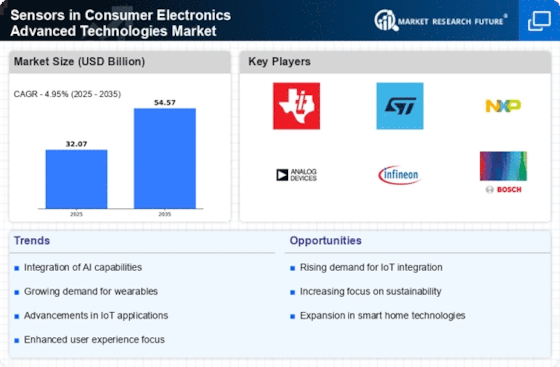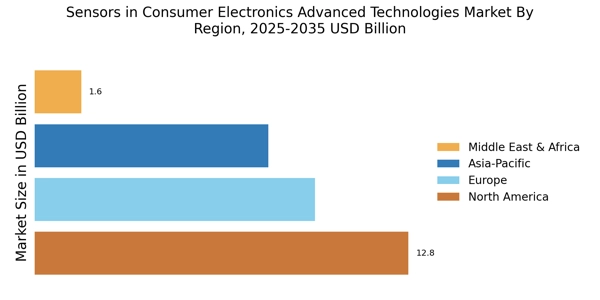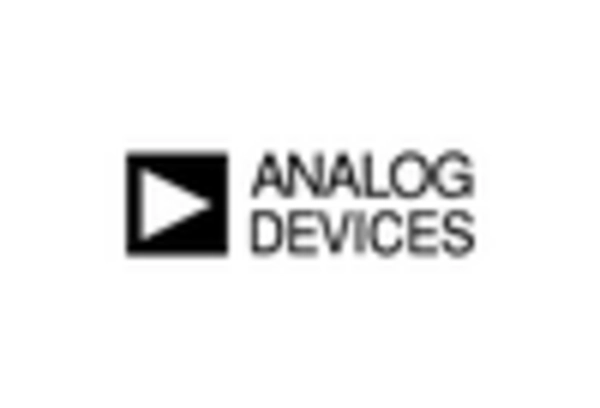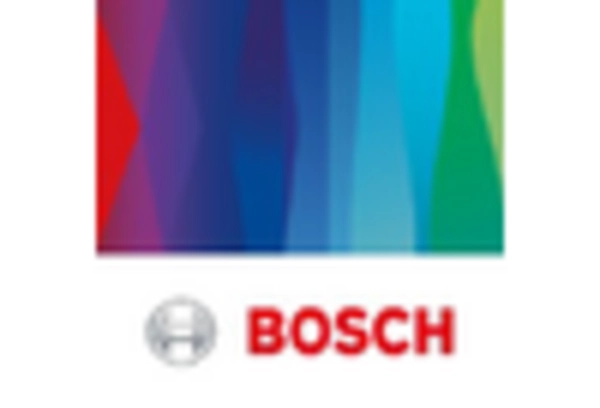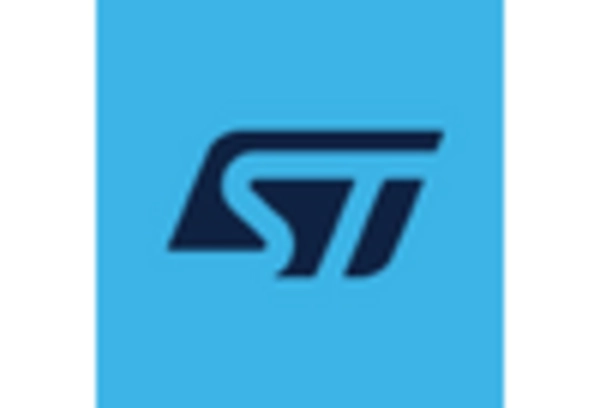Emergence of IoT Ecosystem
The emergence of the Internet of Things (IoT) is a pivotal driver in the Sensors in Consumer Electronics Advanced Technologies Market. As IoT technology continues to proliferate, the need for sensors that facilitate connectivity and data exchange among devices becomes increasingly critical. The IoT market is projected to grow to USD 1.1 trillion by 2025, underscoring the vast potential for sensor integration. Sensors are essential for collecting data from various devices, enabling smarter decision-making and automation. This interconnected ecosystem encourages manufacturers to develop innovative sensor solutions that can seamlessly integrate with IoT platforms. As a result, the demand for advanced sensors is expected to rise, significantly impacting the market landscape.
Growing Demand for Smart Devices
The increasing consumer preference for smart devices is a primary driver in the Sensors in Consumer Electronics Advanced Technologies Market. As more households adopt smart technologies, the demand for sensors that enhance functionality and user experience rises. For instance, the market for smart home devices is projected to reach USD 174 billion by 2025, indicating a robust growth trajectory. This trend is fueled by the desire for convenience, energy efficiency, and enhanced security. Sensors play a crucial role in enabling these features, making them indispensable in the development of smart appliances, security systems, and home automation solutions. Consequently, manufacturers are investing heavily in sensor technology to meet this burgeoning demand, thereby propelling the market forward.
Advancements in Sensor Technology
Technological advancements in sensor capabilities are significantly influencing the Sensors in Consumer Electronics Advanced Technologies Market. Innovations such as miniaturization, improved accuracy, and enhanced connectivity are enabling the development of more sophisticated consumer electronics. For example, the integration of MEMS (Micro-Electro-Mechanical Systems) sensors has revolutionized various applications, from smartphones to wearables. The market for MEMS sensors alone is expected to grow at a CAGR of 10% through 2025. These advancements not only improve product performance but also expand the range of applications for sensors, thereby attracting more manufacturers to invest in advanced sensor technologies. As a result, the overall market is likely to experience substantial growth driven by these technological enhancements.
Increased Focus on Health and Fitness
The rising awareness of health and fitness among consumers is driving the Sensors in Consumer Electronics Advanced Technologies Market. Wearable devices equipped with health-monitoring sensors, such as heart rate monitors and activity trackers, are gaining popularity. The global market for wearable health technology is anticipated to reach USD 60 billion by 2025, reflecting a growing trend towards personal health management. This shift is prompting manufacturers to innovate and integrate advanced sensors into their products to provide accurate health data. Consequently, the demand for sensors that can monitor various health metrics is likely to surge, further propelling the market. This focus on health and fitness not only enhances consumer engagement but also encourages the development of new sensor applications.
Regulatory Push for Energy Efficiency
Regulatory initiatives aimed at promoting energy efficiency are influencing the Sensors in Consumer Electronics Advanced Technologies Market. Governments worldwide are implementing stringent regulations to reduce energy consumption and carbon emissions, which in turn drives the adoption of energy-efficient technologies. For instance, the implementation of energy efficiency standards for appliances is prompting manufacturers to incorporate advanced sensors that optimize energy usage. The market for energy-efficient consumer electronics is projected to grow significantly, with sensors playing a crucial role in achieving compliance with these regulations. This regulatory push not only fosters innovation in sensor technology but also encourages manufacturers to prioritize energy-efficient designs, thereby enhancing the overall market dynamics.

